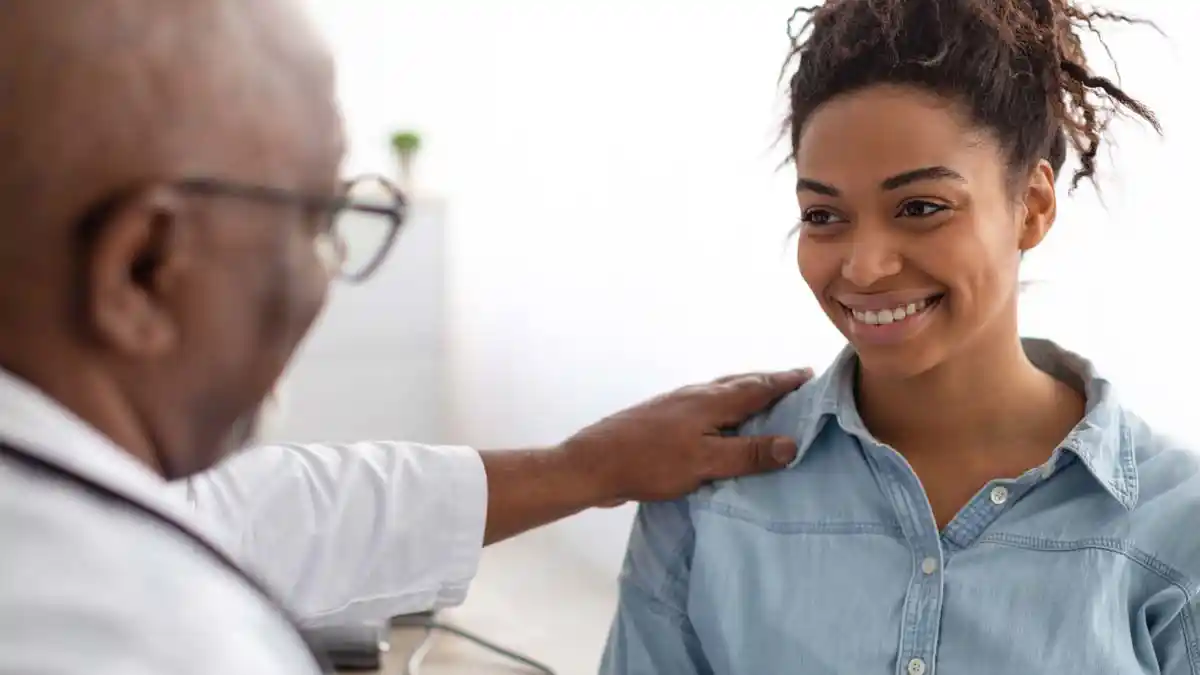You might recognize Dr. Thaddeus John Bell from local TV commercials promoting the COVID vaccine for Black people. Or maybe you saw him recently speaking to local news anchors about health disparities among the Black population.
HealthLinks highlighted Dr. Bell’s professional trajectory pre-pandemic, in early 2020, and a lot has changed since then.
A primary care physician in North Charleston, Dr. Bell has dedicated his life to solving the health disparities in the Black population. He was one of the first African Americans to work for the National Park Service – he was stationed at Yosemite – and later he was the first African American to teach at Gaffney High School. He also was one of the first Blacks to be accepted to the College of Medicine at the Medical University of South Carolina in 1972.
It was in medical school that Dr. Bell started to notice the health disparities among Black people, and he discovered that this situation was related to racism, health literacy and poverty. What motivated him even more to become a doctor was the realization that outcomes for Black patients usually were better when they were treated by Black doctors.
Dr. Bell started the nonprofit Closing the Gap in Health Care in 2005 to help decrease health disparities and enhance health literacy in minority communities. Since then, he has appeared on radio shows, presented “barbershop talks” at churches all over South Carolina and created hundreds of digital newsletters with health-related themes. He was recognized by the National Medical Association in 2013 as a distinguished physician and received a lifetime achievement award from the Charleston County Medical Society. He also offers a scholarship for Black health professional students at MUSC.
Despite all this success, Dr. Bell does not see his mission receding anytime soon. He noted that the most dangerous threats to health among Black people are heart disease, cancer, HIV, kidney disease, mental health issues and social issues. Unfortunately, once the number of COVID-related deaths began to rise in mid-2020, Dr. Bell noticed that Black people were being disproportionally affected by the pandemic. He attributed the higher percentage of cases among Blacks, especially from the Omicron variant, to lower vaccination rates, less access to care than patients of other ethnicities and a lack of information about how COVID spreads and how people who contract the virus should take care of themselves.
“The pandemic uncovered some racism among the medical community against Blacks,” Dr. Bell said. “Closing the Gap had to really get to work and build those relationships with the Black community. There was a high level of distrust toward the medical community and the government.”
Dr. Bell said COVID was devastating for the Black community, in part because since the virus was worse for people with pre-existing conditions such as diabetes and obesity, issues that affect Black at higher rates than other ethnicities.
“The pre-existing conditions were issues the Black community had already been dealing with way before COVID hit. Those were all major health disparities already identified with Blacks,” he said.
“Not to mention just how stressful 2020 was in general for the Black community due to the George Floyd riots,” he added. “All of that converged at the same time. It caused so much stress and depression.”
He also noted the disparity with education in the Black community when many of the schools went on lockdown: “That really set back our Black kids.”
Dr. Bell pointed out that COVID hasn’t really been defined.
“We still don’t have a firm grip of what long COVID really is. We do know that it can cause up 200 different symptoms,” Dr. Bell explained. “COVID has caused a lot of permanent medical issues in the underserved population, like heart disease, mental illness, cancer, disability and kidney disease.”
He said that he has heard from many of his patients about doctors who “blew them off” when they had unusual symptoms. Dr. Bell believes the solution to this problem is more Black physicians.
“When Black people are taken care of by Black doctors, the outcome is usually better,” he said.
Dr. Bell works hard to educate the Black community, appearing in TV and radio ads to promote the importance of being vaccinated.
“I’m dealing with so many people who think COVID is over. Decreased? Yes. But we still have an increase in the amount of illness and deaths in Black people,” Dr. Bell said.
He also works with Urban Radio to disseminate information throughout the state about health issues that affect younger members of the Black community, and, along those lines, he participates in a podcast in Charleston on Z93 Jamz called “Keeping it Real with Dr. Bell” on Tuesdays and Thursdays.
“Closing the Gap in Health Care has been recognized in the community, and we will continue to put good information out for people to use,” Dr. Bell said.
It’s a message that rings true and as clear as a bell.
To learn more, visit closingthegapinhealthcare.org.

By Theresa Stratford







